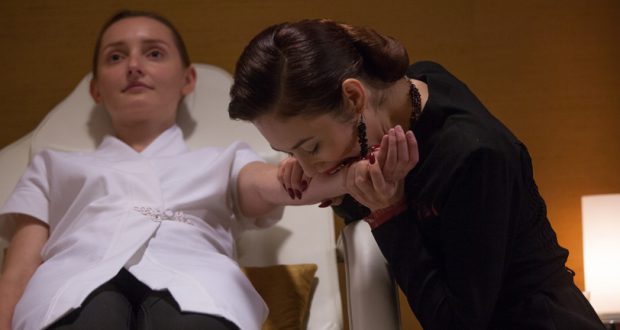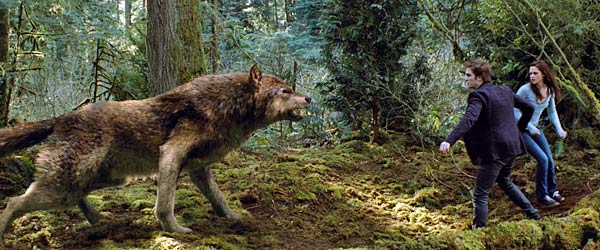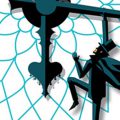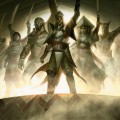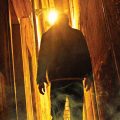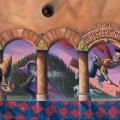Guest post from Paige Orwin, whose debut novel, The Interminables, is out now, published by Angry Robot.
Early on, I decided that I didn’t want any traditional fantasy creatures in The Interminables. No vampires, no werewolves, no figures taken from the mythology of any culture. The only thinking species in the world would be humans – with due acknowledgement paid to cetaceans, apes, and the always-awesome octopus – and they would always be dealing with the actions of other humans.
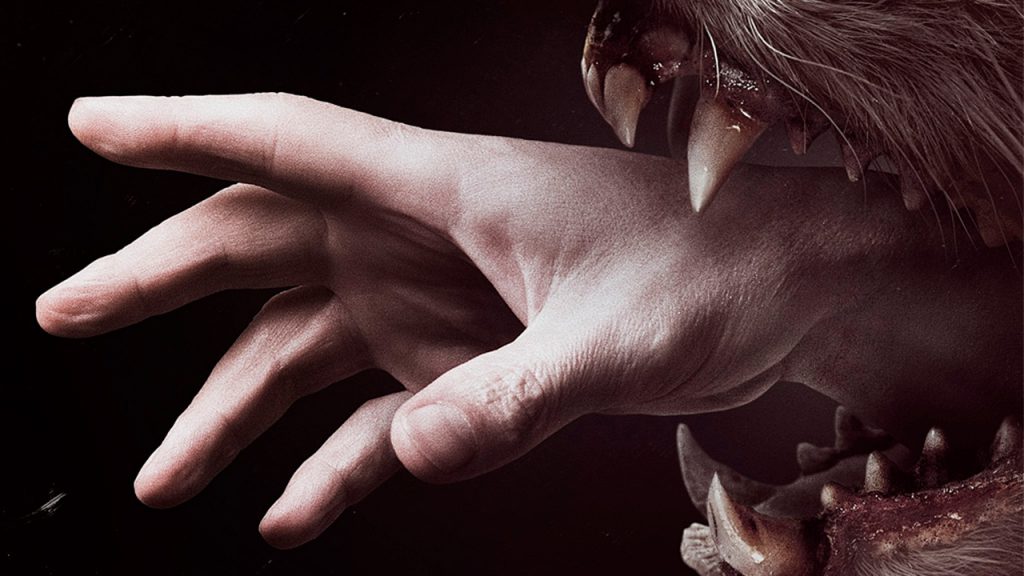 This might seem like a strange stance to take. One of the main characters is a ghost, after all, and thanks to the fallout from the Wizard War many strange beings occupy the book’s pages – from disembodied concepts to mantid helicopters to tiger/bear/blizzards – and the skeletons of massive artificial kaiju monsters dot the landscape that they helped destroy. There are realms beyond the known, and intelligences do exist there that can be brought to our world with sufficient skill and desperation. Much of the plot revolves around a creature like this.
This might seem like a strange stance to take. One of the main characters is a ghost, after all, and thanks to the fallout from the Wizard War many strange beings occupy the book’s pages – from disembodied concepts to mantid helicopters to tiger/bear/blizzards – and the skeletons of massive artificial kaiju monsters dot the landscape that they helped destroy. There are realms beyond the known, and intelligences do exist there that can be brought to our world with sufficient skill and desperation. Much of the plot revolves around a creature like this.
How, then, can I claim to not want things like werewolves? Wouldn’t they fit right in? Is it just because other authors have written about werewolves already?
Well… sort of.
I’ve thought about this for a while, and it is true that there aren’t many things I can say about the traditional fantasy creatures that hasn’t been said already. That’s part of it. But there’s more than that. Three things:
- There are so many cultures in the world. So many. Pinning down magic and its fantastical critters to a single one of them – saying “yes, there are fairies, but they are of this specific kind from this specific place” – seems limiting, and a little self-centered. Why should magic be so confined, and why is one specific culture so incredibly right about the secrets of the world while everyone else only knows distorted versions of The Truth? And yes, branching out and saying “well, okay, but fairies in this other country match the descriptions of fairies in that country” is one solution, but that leads to something else that bothers me.
- Humans, as a species, have an amazing imagination. We’re really, really good at taking all kinds of ideas and mixing them up and inventing new things. Declaring that, actually, all of these fantasies are true, and the legends everywhere were right, and every magic creature exists somewhere just as it was described… well, kind of makes humans seem not that imaginative anymore. We’re just reporting what we saw, with no allowance for local spins on anything (because the local creatures already match the stories, of course – kind of them to respect national boundaries).
- I like history an awful lot. History is very complicated and contradictory because it has to do with human beings who are kind of terrible at keeping unbiased records and, as a species, we’re prone to doing a lot of things that made a lot more sense at the time. It doesn’t help that winners like to burn books and ban languages, which means a lot of lost knowledge.
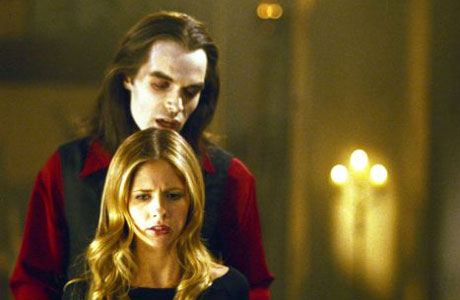 I think my decision came down to wanting a framework for magic that doesn’t put one set of stories above another, gives credit to regular people, and acknowledges that history is messy. Including specific creatures from a specific culture shifts the focus and weight of magic to that place and that set of ideas. Including creatures that have their own societies shifts the focus away from humans and our societies. I don’t have anything against secret underground worlds of fairies, but that wasn’t what I wanted to do.
I think my decision came down to wanting a framework for magic that doesn’t put one set of stories above another, gives credit to regular people, and acknowledges that history is messy. Including specific creatures from a specific culture shifts the focus and weight of magic to that place and that set of ideas. Including creatures that have their own societies shifts the focus away from humans and our societies. I don’t have anything against secret underground worlds of fairies, but that wasn’t what I wanted to do.
In The Interminables, everything fantastical is the direct result of the knowledge and actions of human beings. There is a character who steals life from other people and who wears an opera cape, but he’s an ordinary person who taught himself from a book he really shouldn’t have stolen. There is a ghost, but he’s the result of a magical accident he didn’t realize he was committing. There is a magical apocalypse, but – I’m sorry to say – a wizard did it. The only recognizable civilization is the wreckage of our human one. The realms of magic are distant and dangerous and alien, and anything summoned from there has to be filtered down to fit into the world.
…you know, on second thought, maybe I just wanted more magic based off Lovecraft, without all the racist undertones and fish people.
Yeah, never mind, that’s probably it.
Paige Orwin was born in Utah, to her great surprise. At the age of nine she arranged to rectify the situation. She now lives in Washington state, next to a public ferry terminal and a great deal of road construction, and has never regretted the decision.
 She is the proud owner of a BA in English and Spanish from the University of Idaho, which thus far has not proven terrifically useful for job prospects but she knew the risks of a humanities degree going in. She also survived the 8.8 Chilean earthquake in 2010, which occurred two days after her arrival in the country (being stubborn, she stayed an entire year anyway).
She is the proud owner of a BA in English and Spanish from the University of Idaho, which thus far has not proven terrifically useful for job prospects but she knew the risks of a humanities degree going in. She also survived the 8.8 Chilean earthquake in 2010, which occurred two days after her arrival in the country (being stubborn, she stayed an entire year anyway).
She began writing The Interminables when her favorite video game, City of Heroes, was shut down in late 2012.
Her partner in crime wants a cat. This, thus far, has not happened.
You can find Paige online at www.paigeorwin.com, and on Twitter @PaigeOrwin.
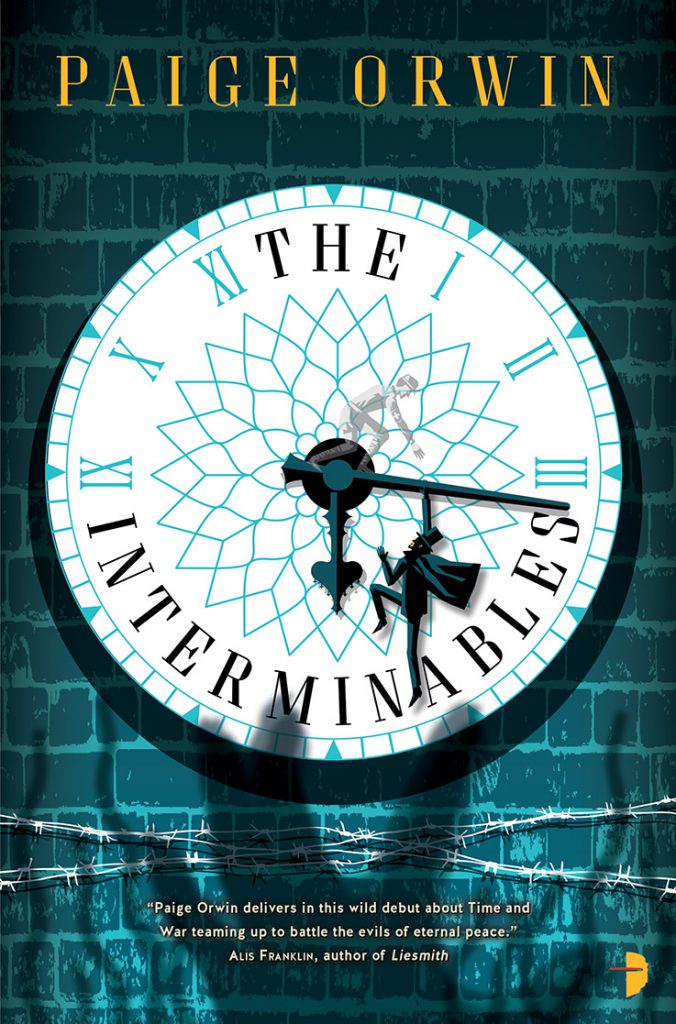 It’s 2020, and a magical cataclysm has shattered reality as we know it. Now a wizard’s cabal is running the East Coast of the US, keeping a semblance of peace.
It’s 2020, and a magical cataclysm has shattered reality as we know it. Now a wizard’s cabal is running the East Coast of the US, keeping a semblance of peace.
Their most powerful agents, Edmund and Istvan – the former a nearly immortal 1940s-era mystery man, the latter, well, a ghost – have been assigned to hunt down an arms smuggling ring that could blow up Massachusetts.
Turns out the mission’s more complicated than it seemed. They discover a shadow war that’s been waged since the world ended, and, even worse, they find out that their own friendship has always been more complicated than they thought. To get out of this alive, they’ll need to get over their feelings, their memories, and the threat of a monstrous foe who’s getting ready to commit mass murder…
 Pop Verse Pop Culture Universe
Pop Verse Pop Culture Universe
